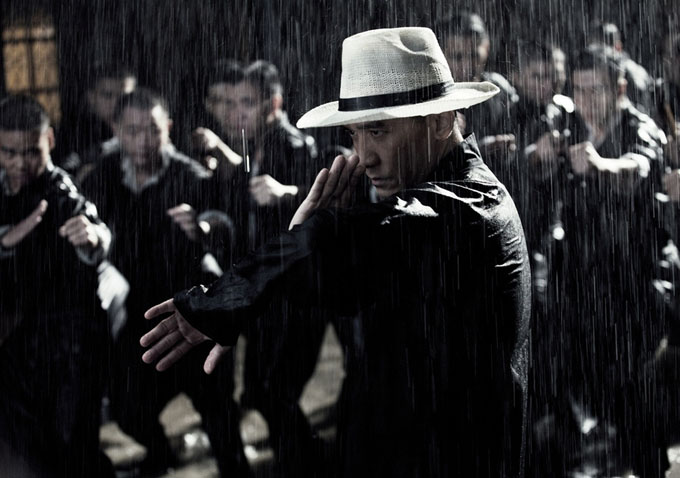 Listen trailer-makers. We get it. Movies in a foreign language are a tough sell the minute you throw subtitles up on the screen. In North America (so their marketing bods tell them), it’s likely nine tenths of viewers will tune out at the first sight of a subtitle. But working with an auteur the level of Wong Kar-Wai, an acknowledged master of cinema with a huge and dedicated fan base (many of whom have been waiting years for a new WKW joint), surely The Weinstein Company could have come up with something better than this?
Listen trailer-makers. We get it. Movies in a foreign language are a tough sell the minute you throw subtitles up on the screen. In North America (so their marketing bods tell them), it’s likely nine tenths of viewers will tune out at the first sight of a subtitle. But working with an auteur the level of Wong Kar-Wai, an acknowledged master of cinema with a huge and dedicated fan base (many of whom have been waiting years for a new WKW joint), surely The Weinstein Company could have come up with something better than this?
The first U.S. trailer for the long-long-awaited “The Grandmaster” is here and it features pretty much the exact same footage we’ve seen in countless international spots already. There are a few minor changes, with different cuts and some American style editing, but its the same slow, atmospheric tease everybody else has already seen. What is brand new is the hilariously awful voiceover (does this guy do Ford and Chevy commercials too?) that is made worse by the insipidly leaden guff he’s given to read. “The guy on the ground is wrong, the last man standing up, is right.” Seriously? Maybe it’s fitting for a film which, as we noted in Berlin, opens “in 100% cornball Rimmel-commercial style” and that Wong Kar-Wai’s “inability to maintain [mood and tone] is among the film’s chief disappointments.” (sorry WKW fans!)
Either way, this is a puzzling and clumsily put-together introduction to U.S. audiences that will do an awkward film no favours. “The Grandmaster” goes horizontal and vertical on August 23rd.






I remember the Takeshi Zatoichi trailer "the story of a man who united a nation"
That line is more or less a literal translation of what is said at a certain scene in Chinese. It is pretty damn powerful in Chinese, and a metaphorical translation would not work any better than a literal one because it would have to give the context of calligraphic brush-strokes in writing the Chinese characters of "kung-fu" serve as a metaphor for the philosophy of the discipline. So yes, Kevin, seriously. It's easy to deride nuances that get lost in translation, but it's an incredibly difficult — if not impossible — job trying to convey any depth of meaning without resorting to a long-winded explanation.